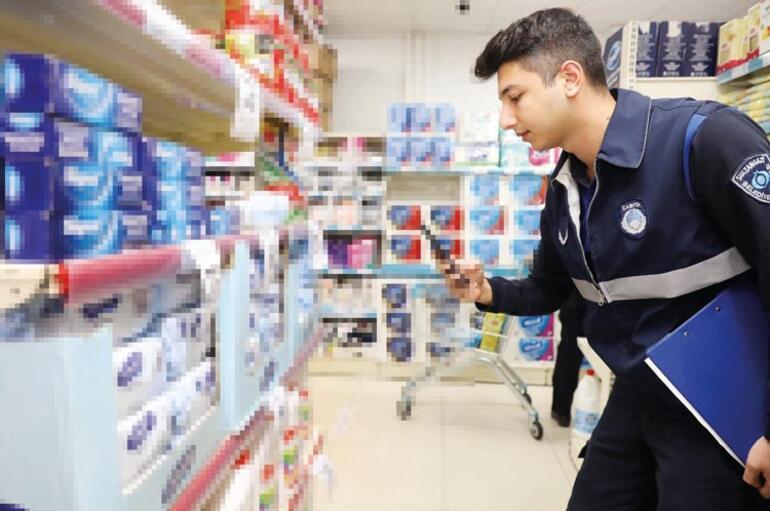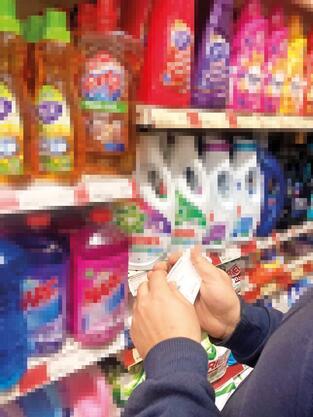End Changes in the prices of products on the market shelves and the reasons for this change are at the forefront of the biggest debates in recent months. Concluding, President Erdoğan said: “We will tighten controls, especially our Ministry of Commerce. The whole point is that we will look for ways to eliminate these price differences. Many units have differences in economy. We will tighten controls on chain markets, we will find ways to eliminate price differences, we will move on.”
The President of the Food Retailers Association, Galip Aykaç, said in a recent statement: “The profit that the highest profit in organized retail makes is 4 percent. If you give everything, inflation will not go down. I tell the journalists and heads of chambers who consciously buy it for 1 and sell it for 3, sell it for 4, and say that this perception operation has no equivalent for the citizens”; He said that even if the tomato was bought from the field for 0 lira, the price reached 7.5 lira before it hit the market.
class=”medianet-inline-adv”>
WHAT DO THE PARTIES SAY?
What do the parties and experts say? Organized retailers say they don’t set their own prices, farm inputs are up 138 percent and they operate at high costs with the lowest profit margins. He states that the field price of the product is high and points to high fuel, rental and labor costs. The citizen, on the other hand, is fed up with the high price tag on the shelf and the constant increase in this price. Some of the experts say that some of these increases are due to input costs, but that malicious people are unfairly increasing certain products by saying that “citizens have to buy anyway” and this is distorting the market. Artisans, on the other hand, say that particularly large markets sell the product they buy with a given input at prices 2-3 times higher without changing the input costs.

class=”medianet-inline-adv”>
NO ONE CAN BEAT THE PRICES
Citizens say that one day on the shelves does not last another, they have difficulty understanding such rapid and high price changes. According to data from Akakce.com and Cimri.com, which provides users with a graph of past price changes, 1 kg of dry beans, which was 25.90 liras on Jan. 1, rises to 35 liras in May. 48 lira in September, 52 lira in October and 60 lira in November. Again, on January 1, 500 grams of cheddar cheese, which sells for 37.5 lira, rises to 70 lira in May, 106 lira in September and 111 lira in November. On the other hand, 32 packs of toilet paper sold for 70 lira in January rises to 100 lira in February, 120 lira in May, 150 lira in September, 180 lira in October, 199 lira in November and 209 lira in December. A toothpaste that sells for 19 lire in January costs 40 lire in March, 65 lire in September and 90 lire at the end of November.
class=”medianet-inline-adv”>
‘MANUFACTURER ENTRY BROKEN RECORD’
TOBB ETU Faculty Member Assoc. DR Atılım Murat:
Despite all the costliness, the consumption of the citizens is very strong. Since inflation is not decreasing, needs are constantly being brought forward. The same is true of food and clothing. The thought that it will become more expensive reinforces this demand. Producer inputs play a very important role in price increases. We cannot ignore this. Manufacturer inputs are breaking records for some items, which inevitably drives up prices. There is a pricing confusion that we need to keep track of. The problem is already there. Some products are rightly priced up while others are unjustly priced up. It’s chaos. Anyone shopping can see this. Those who act maliciously believing that what I put on the label will sell influences the market. Some products cannot be continuously increased. But it’s also very difficult to spot.
class=”medianet-inline-adv”>

“IT IS NOT HIGH THAT FREQUENTLY”
TESK Chairman Bendevi Palandoken:
“The costs are increasing in all areas. However, a product is not grown every day or often. The production processes of some products are suitable for these migrations. However, large markets increase the products they buy with a given input by 3-4 times before a new one arrives. It keeps the entire system under control, from the field to the shelf. A grocery store and a butcher run their store with the same input costs. But he doesn’t get raises that often.”
‘PRICES WILL BE BALANCED’
Mehmet Reis, CEO of Reis Gıda:
“The lower the producer’s input costs, the lower the price increase will be. Shelves are being scrutinized for price increases, but we need to focus on the real reasons. TMO takes important steps: For the first time in my professional life, upward purchase prices were announced this year. We fight for the producer to make a profit and for the consumer to buy products at an affordable price. Price increases will level off; With rice, with beans, we experience an imbalance. Different prices may apply in some markets, but this is related to the purchase made in different time periods. During our meeting with Minister Vahit Kirişci in the past few weeks, he said: “We will prepare the production plan for the next 6 years; He said, ‘There will be no land that will not be tilled,’ and I was very happy about that.”
class=”medianet-inline-adv”>
WHICH ENTRANCE IS AFFECTED?
The impact of global economic developments on Turkey was more noticeable due to the high exchange rate. The rise in commodity and energy prices made it difficult for producers to access input costs and for consumers to access affordable products. According to the latest data, annual inflation reached 85.51 percent. PPI, on the other hand, saw an annual increase of 157.69%. While agricultural input inflation topped 138 percent; PPI for agricultural products also rose 163.32 percent. The government meanwhile increased the 50.5 percent increase by 30 percent and set the minimum wage at 5,500 TL. While the price of Brent oil per barrel, which was around $70 at the beginning of the year, reached $110 after the war, it has long hovered around $90. In Turkey, diesel prices increased by almost 130 percent last year, finally reaching the level of 22 lire.
“WE ARE IN AN INVISIBLE PROCESS”
PERDER board member İhsan Biçen:
We must seek the truth before attempting to find a criminal. We all want good things for our country. Currently, the number of markets per capita in our country is higher than Europe. This increases competition, which is actually good for society. Everyone is afraid, ‘I’ll lose my customer if I don’t make it cheaper’. It’s normal for perception to come here about the markets. Even the most ignorant of us don’t opportunistically know, if you have customers you exist, otherwise you don’t. All markets, from the smallest to the largest, are thinking about selling them cheaper. Consumers are also right, we are going through such a time that we are in a process that the new generation has never seen in their lives. Our consumer rightly criticizes, but the problems need to be solved radically. If fertilizer and logistics are expensive, we should all focus on solving it. Saying ‘it’s your fault’ doesn’t solve the problem.”
“WE CAN’T RAISE IF WE WANT TO”
Grocery Retail Der. YKU Erdal Tufekci:
“There are price increases in the production costs of products on the market shelf, raw materials, energy, logistics. Electricity costs now exceed rents. We are the last link in price hikes, we buy, we are not on the price setting side. In addition, retailers compete with each other, which prevents inflation from rising. Prices are determined daily for vegetables, fruit, meat and dairy products in the daily category, as well as products such as ravioli and yufka. The producer sets the price at his own expense, or we set the price based on the egg exchanger’s specifications. There may be opportunists in every sector tightening the price range. Someone outside of organized retail may buy and store products, but doing so requires additional storage and operational costs. It is not possible to enter such a cost increase for a single opportunity.”
#permanent #increase
No comments:
Post a Comment